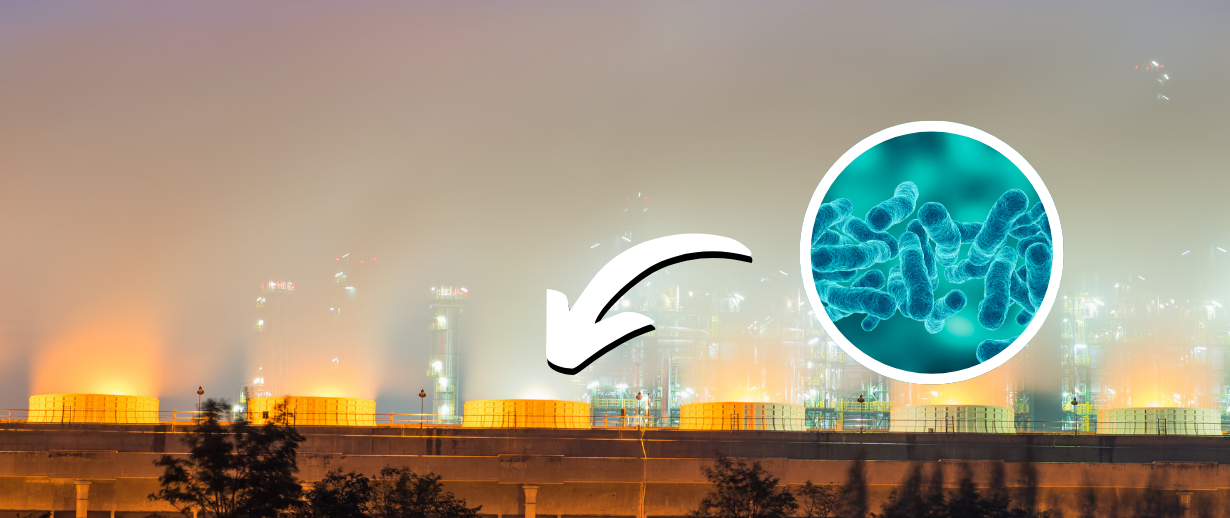Cooling tower water systems are critical components in industrial processes, but they face a significant challenge: microbiological contamination. Without proper monitoring and control, these systems can become breeding grounds for harmful microorganisms, leading to serious health risks, equipment damage, and reduced operational efficiency. In this blog, we will explore how Differential Microbial Analysis (DMA) provides facility managers with the insights needed to maintain safe, efficient cooling tower operations and prevent costly system failures.
What are the risks of untreated cooling tower water systems?

Although packaged in many different shapes and sizes, cooling tower water systems remain
fundamental to several important industrial processes. However, to function as efficiently as possible, cooling towers must be kept free from the growth of microorganisms, such as bacteria and algae. If not, pathogens, such as Legionella, which spread Legionnaires’ Disease, can develop. There is also the role microbes play in corrosion, structural damage, and the performance of cooling systems.
The presence of the biological deposit prevents corrosion inhibitors from reaching the fouled surface, and the side effects of microbial growth include the generation of corrosive acids with the ability to attack system surfaces, and reducing asset integrity.
Biofilms impact heat exchanger efficiency by acting as insulating barriers. Heat exchanger performance begins to deteriorate as soon as biofilm thickness exceeds that of the flow rate. A thin layer of biofilm has a significant impact on heat exchanger efficiency and, therefore, excessive utility costs.
Why do cooling towers become breeding grounds for microorganisms?
Unfortunately, by virtue of their design, cooling tower water systems provide a rich breeding ground for such microorganisms to thrive. Therefore, to prevent microbiological contamination, site managers must adhere to a strong commitment to maintenance. Although routine microbial testing provides site managers with a snapshot of their system’s ‘general health’, there are techniques that offer far more detailed analysis. Arguably, the most effective of these techniques is DMA.
What is Differential Microbial Analysis (DMA)?

DMA is an advanced testing technique that goes beyond standard microbial testing. Unlike basic methods that provide only general contamination levels, DMA identifies specific species of microorganisms present in cooling water systems. This detailed analysis enables more targeted and effective treatment strategies when looking to establish an effectively managed biocide programme.
How does the DMA testing process work?
The DMA process involves several key steps:
- Collection of water samples from the cooling tower system
- Careful streaking of samples onto specialised agar plates
- Incubation under controlled conditions
- Analysis of cell cultures after several days
- Microscopic examination to identify specific organisms
By using DMA, site managers can figure out whether microbial populations within their systems are stable, increasing, or decreasing. This additional insight is not available with dip-slides and allows for more informed decision-making.
At Veolia Water Technologies, our team of experts are able to undertake this analysis, employing the highest standard of sampling techniques. What’s more, our in-depth technical capabilities mean we can provide a comprehensive interpretation of the analysis, helping site managers to harness on-site improvements from the data.
To this end, our team can use the information gained from DMA to develop individual treatment programmes for sites suffering from microbiological proliferation. Across our industry-leading range of Hydrex biocide chemicals, we are able to create solutions to tackle any microbial growth
problem. Similarly, our team is on hand to provide a regular servicing programme to ensure that results last in the long term. As such, when looking to ensure the most effective maintenance on cooling-tower water systems, look to us.
Chat to one of our experts now.